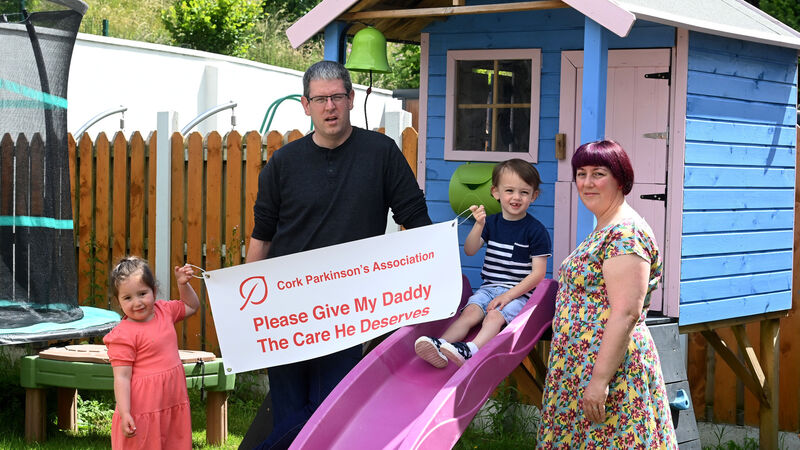'There's nobody to call': Parkinson's patients seek more supports

Ivan and Eleanor O'Sullivan with their children Effy and Ellis. Picture: Larry Cummins
When Ivan O’Regan was diagnosed with Young Onset Parkinson’s Disease (PD) 10 years ago at the age of 31, his world was flipped upside down. Due to the under-resourcing of PD care in Ireland, he says he was left to process this without proper support.
Mr O’Regan took to the internet to research what he was in for over the years ahead. Seeing images of mainly older people with PD made it “psychologically very difficult” for him.













